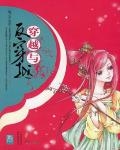The second volume is full of glory and splendor in the capital, and the spirit is full of vitality in the foggy city. Chapter 323 Major Events (V)
Subtitle of this chapter: Yes, Prime Minister!
ET, 8:30 p.m.
New York, The New York Times editorial office.
Carl Van Anda, a legend in the American newspaper industry, is a name that cannot be ignored, as he set the standard for American business news newspapers.
This man can be said to be a genius who was born to do this job.
In 1870, when Van Anda was a 6-year-old farm boy in Ohio, he began pasting newspaper clippings onto paper and selling them for 10 cents. At 10, Van Anda built a printing press with a wooden frame, wrapped a broom handle in cloth as an ink roller, and printed using discarded lead type from the village newspaper.
He became editorial director of The New York Times in 1904 and would spend the next 25 years of his career there.
Even though he was already the editor-in-chief, he never gave up his duties as the night editor.
Throughout his long tenure at The New York Times, his daily routine remained constant. He showed up in the newsroom at 1 p.m., went home for lunch and a rest break at 6 p.m., and returned to the newsroom at 10 p.m., staying there until 5 a.m. the next morning, when everyone else finished. He was usually the last to leave.
It is said that he made only three exceptions over the years.
On the evening of July 23, 1921, he made an exception and came to the editorial office at 8 o'clock to meet with a group of editors.
"What do they say in London?"
"Mr. Fan Anda, a telegram from London has confirmed the news. The crown princes of Britain and Japan have indeed been kidnapped, and it was the Chinese who kidnapped them."
“Damn it!”
"Mr. Fan Anda, those Chinese people really deserve to die..."
"No, I'm not talking about the Chinese. I'm saying that Le Monde was one step ahead this time!"
"Oh, Mr. Van Anda, there's nothing we can do about it. After all, Herbert Pulitzer's daughter is here."
"I know, but I just can't accept it..."
“Tap, tap, tap.”
At this time, someone knocked on the door of the conference room.
"Come in."
The man holding a newspaper said, "Editor-in-Chief, Le Monde has published another special edition."
"Bring it here for me to see!"
The editor-in-chief of The New York Times took it and saw that there were two articles on it.
One article tells the story of how the Hibiscus Corps successfully stopped the British police's attack by distributing leaflets.
The other article records in detail the heroic but failed and touching act of our Master Yuan.
"Mr. Van Anda, should we also publish a special edition? Besides Le Monde, other newspapers are also publishing special editions now."
"What's the use?"
Van Anda used his famous "Van Anda Death Ray," which was an icy gaze, to look at the person who spoke.
He waved the newspaper in his hand and said coldly, "We're publishing a special edition to tell our readers that the editor-in-chief of Le Monde, his daughter, is here. She can get firsthand information, right? And then they should all go buy Le Monde tomorrow!"
"this……"
The editors present looked at each other, speechless.
Just as the editor-in-chief said, publishing a special edition now is like advertising for Le Monde.
The legendary editor-in-chief of the New York Times was very upset at the moment because he vaguely felt that he and the New York Times seemed to have missed something.
What did you miss?
If our Master Yuan were here, then this time traveler would be able to tell Carl Van Anda what he missed.
Today the three major newspapers in the UK are The Times, The Daily Mail and The Guardian.
The four largest newspapers in the United States in the future are The New York Times, The Washington Post, The Los Angeles Times and The Wall Street Journal.
Notice anything different about broadsheets in the UK and the US?
BINGO!
British newspapers do not have place name prefixes. Although the Thames is a place name, it does not only flow through London.
The names of American newspapers all have place prefixes, which means that they were all local newspapers in the past.
Simply put, this difference is determined by three major conditions.
First, in terms of land area, the British Isles are simply not comparable to the United States. The former is only a little over 200,000 square kilometers, while the US state of Virginia alone is over 110,000 square kilometers.
Obviously, a small country does not need too many local newspapers.
Second, as the world's first industrialized country, Britain had the Royal Mail as early as the 16th century. By the end of the 19th century, the British railway network had basically run through the entire country.
It is also obvious that convenient transportation and a complete postal system are conducive to the distribution of national newspapers.
Third, the British were more concerned with national affairs than the Americans because Britain had long since become a nation-state, while the United States was still in the formative stages of its nation-state formation, and the American nation had not yet truly taken shape.
Even a hundred years later, the Yankees would not care much about international news and national affairs, especially those farmers who basically only cared about their own one and a half acres...that 1,300 acres of land.
However, the American nation must eventually take shape, and the American people will eventually need some national newspapers.
Being located in the largest city in the United States, New York newspapers have a unique advantage. As a result, two of the four major newspapers are from New York, and The Washington Post is also located on the East Coast.
Carl Van Anda has already vaguely realized this matter, and the "World" that has stolen the limelight this time is very likely... No, it will definitely become the biggest enemy of the "New York Times".
At this time, another staff member hurried into the conference room and asked, "Gentlemen, have you listened to the broadcast?"
"broadcast?"
"Yes, radio." The staff member turned on the radio in the conference room.
"Listeners, this is NYPR. Next, we'd like to bring you the latest news from Emma Pulitzer, a reporter for Le Monde..."
Since Le Monde has been in the spotlight, it is natural for New York Public Radio to take advantage of the popularity.
Don't forget that these two companies are now working in the same building.
After hearing the broadcast, the American newspaper legend's face became even uglier.
He had already confirmed at this time that just as the sinking of the Titanic led to the rise of the New York Times, the "723 Incident" would allow Le Monde and NYPR to come from behind and take the lead.
"hair!"
"Mr. Van Anda, what did you say?"
"I said we should publish a special edition too!"
However, he was a natural born journalist, and he immediately came up with a new idea: "We should first send reporters to interview the Chinese and Japanese and ask for their views. Oh, and we should also popularize the origins of the Shandong issue..."
Almost simultaneously. Washington, D.C., White House.
“Clatter… clatter…”
"Mahjong is really fun, but shuffling the cards is a bit troublesome."
"Mr. President, I heard that Mr. Tesla invented the Tesla Mahjong machine that can automatically shuffle the cards. Why not install one in the White House?"
"That's a great idea..."
This is a really good idea!
Perhaps this can become a symbol of friendship between China and the United States, just like the ping-pong ball in the original timeline.
I just wonder what expressions the Seres who visit the White House in the future will have when they see an automatic mahjong machine.
Is it Saturday night? What else could President Warren Harding do if not play mahjong with his "Mahjong Cabinet"? Oh, it seems there's something else to play...
Just as they were fighting fiercely, a White House staff member came in and announced: "Mr. President, Secretary of State Hughes wants to see you."
"What's he doing here so late?" President Harding stood up reluctantly and said, "Well, I'll go see him."
"Charles, what's the emergency?"
The American Secretary of State, with a strange expression on his face, handed over a telegram and said, "Mr. President, news just arrived from London."
"Oh, London? There's going to be some urgent news from London..."
President Harding took it and looked at it, then said with a mixture of laughter and tears: " Hmm, is this true? Are the British really just sitting around doing nothing? How could such a thing happen?"
After reading a few sentences, he frowned and said, "Ah, our minister and several American citizens were also... Neo was injured by them. This is really, this is really, this is really..."
"...This is really!" The old man finally didn't know how to express his feelings, so he asked: "Charles, what should we do then?"
Charles Evans Hughes, who had a plan in mind, immediately responded, "Mr. President, I think at this stage we should issue a statement expressing our grave concern."
President Harding was just a soft-hearted person, not a complete political idiot.
He reminded, "We also need to tell the British to ensure the safety of our American citizens... and Neo Yuan."
“STOP!”
The Commissioner of London Police heard the sound and looked back, and saw an acquaintance.
"Sir Appleby, what brings you here?"
It turned out that this man's name was Sir Humphrey Appleby, and he was the Prime Minister's chief secretary.
So, these two naturally know each other..
The secretary, who seemed very clever and slick at first glance, glanced at the reporters around him, then hurried forward and said in a low voice, "Sir, the Prime Minister is here. He asked you to see him."
Then, in a car not far away, Sir Holwood met the British Prime Minister, Earl David Lloyd George, with a grim face.
"Sir, why are you here?"
Prime Minister George, with his large square face, mustache, thick eyebrows, sharp eyes, and dignified appearance, snorted coldly and said, "Sir, if I'm not coming, do you want His Majesty to come in person?"
"I, of course, that's not what I meant. Your Majesty, you also know..."
"Nonsense, of course His Majesty knew. And he was the one who informed me!"
The British Prime Minister really wants to shoot this waste right now, but as his secretary suggested before, who will take the blame if this guy is shot at this time?
He asked irritably, "Sir, stop talking nonsense. I heard you were going to storm the embassy?"
"Yes, sir." Sir Holwood said with a cheer, "I think the kidnappers are not yet firmly established. We should seize this opportunity..."
"Stupid!" the Prime Minister exclaimed angrily, "They're already firing mortars, and you're still saying you haven't established a firm foothold yet?!"
"Not to mention the two Crown Princes, there are also two cabinet ministers and so many foreign envoys. The death of one of them would be a huge matter. Do you want to have a military court?"
Although the Director General was not an active-duty soldier, reservists could be court-martialed under certain special circumstances. This was definitely a "special case."
"Then what should we do?"
"Superficial!" The Prime Minister became even more angry. "What should we do? Of course, of course, of course..."
Even though he was a veteran politician who had been active in politics and the meritorious prime minister who had led the British Empire to victory over Germany, he was at a loss at this time .
"Sir, our top priority is to appease the Japanese side." The smart little man interrupted in time.
When Prime Minister George heard this, he immediately nodded and said, "That's right. Go find the Japanese diplomats. I want to apologize to them in person."
Sir Holwood had no choice but to bow his head and said, "Yes, Prime Minister."
The Prime Minister's secretary then suggested, "Then we should have a good 'communication' with the Chinese Minister Gu."
"That's right, go find Minister Gu quickly."
"Yes, Prime Minister."
Finally, the Director couldn't help but ask, "Your Excellency, what about the people in the embassy, especially the two princes..."
"They..."
Humphrey had no choice but to do his duty again. He pointed to the leaflets on the ground and said, "Didn't these people say they would issue a statement tomorrow morning? Why don't we wait a while?"
Bureaucrats? Procrastination is their specialty.
So the three top British bureaucrats looked at each other and nodded...
Of course, Gu Weijun did not leave here, and he could not leave here because he was a Serbian.
However, after much persuasion, he finally persuaded the police to send his wife Huang Huilan back to the embassy.
When he was "invited" by the Director-General to appear before the Prime Minister, he saw him politely apologizing to the Japanese diplomatic representatives.
"I'm sorry, I'm so sorry. I'll personally send a telegram to His Majesty the Emperor to apologize..."
However, the Prime Minister, who had been apologetic just now, instantly changed into an arrogant look when he saw Gu Weijun.
He only heard him say in a sinister tone: "Sir, what is going on? Do you Chinese want to destroy the stability of the Far East?? "
Poor Gu Weijun broke out in a cold sweat upon hearing this. He didn't even bother to wipe it off and quickly defended himself, "Your Excellency, I swear this matter has nothing to do with our government!"
"You promise?" Prime Minister Lloyd sneered, "What promise do you have?"
"I, I, I..." Even Gu Weijun, China's top diplomatic talent at the time, could not answer this question.
The British Prime Minister waved his hand and said, "Sir, let's not waste any more time. I now ask you to immediately notify the Chinese government and ask them to issue an official statement distancing themselves from this matter..."
"Your Excellency, on behalf of my government, I thank you."
Although Gu Weijun knew that this "please" was actually a "request"... well, more precisely, an "order," he said this because he didn't want to implicate the Chinese government in the "723 Incident." Therefore, his thanks were sincere.
Prime Minister Lloyd said impatiently, "I haven't finished yet, please don't interrupt me. In that statement, I also strongly condemned this..."
Humphrey on the side reminded: "Hibiscus Legion."
"Oh right, the Hibiscus Army. I strongly condemn them!"
"this……"
Gu Weijun, with a troubled expression on his face, knew full well that the actions would surely be applauded by many, many, many, many people back home. And if the Beijing government strongly condemned them, it would be tantamount to actively labeling itself a "traitor."
"Is there anything wrong with this?"
Gu Weijun also knew that the situation was stronger than him, so he said with a bitter face: "No, no problem."
"Well, sir, please inform the Chinese government as soon as possible. We will provide convenience."
"Yes, Prime Minister."
If the mastermind of the "723 Incident" stood in front of Gu Weijun at that time, he would have eaten the other person's heart alive!






